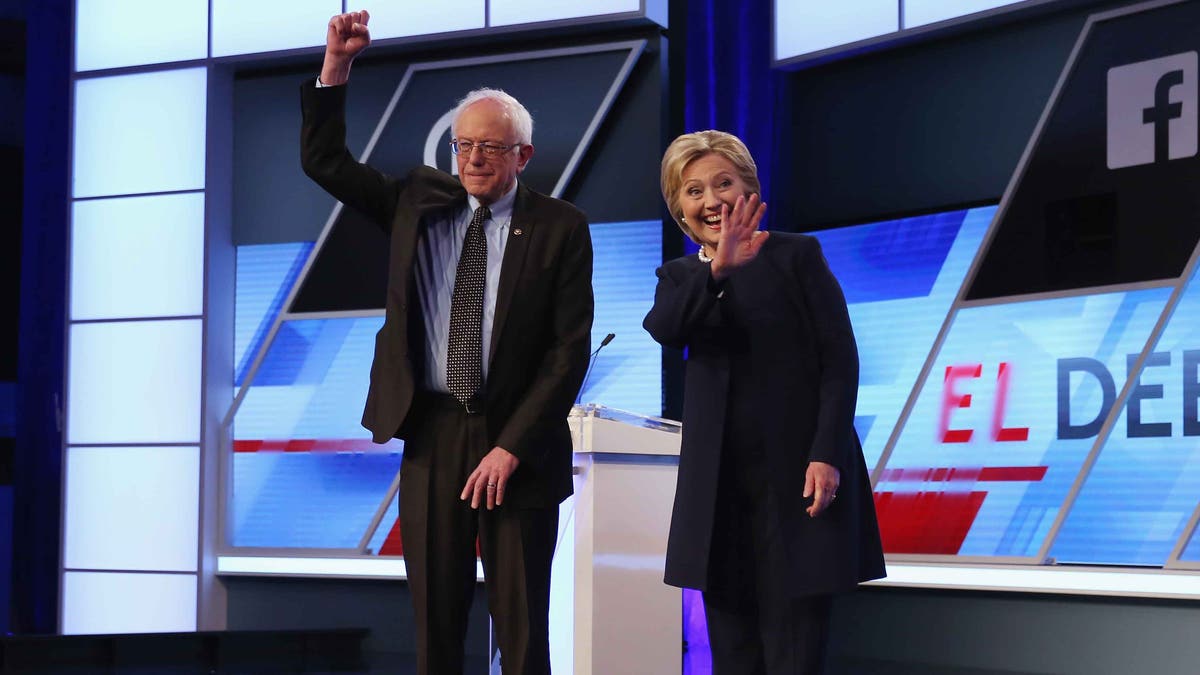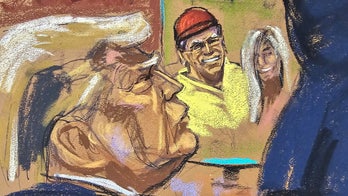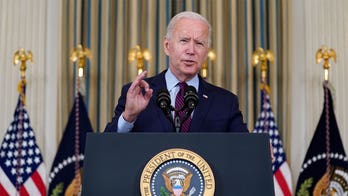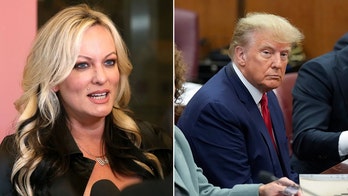
Presidential candidates Senator Bernie Sanders and Hillary Clinton on March 9, 2016 in Miami. (2016 Getty Images)
Just days away from the critical primary in Florida, home to 1.8 million Latinos, Hillary Clinton and Bernie Sanders accused each other in a debate Wednesday of flip-flopping on measures to help undocumented immigrants, and vowed to reform immigration, either through Congress or executive powers.
Clinton, who is the front-runner in the race to be the Democratic nominee for the presidential election, and her rival Sanders both vowed not to deport undocumented children or others who have not committed crimes.
Both candidates said they would make comprehensive immigration reform a priority if they become president, and if they could not achieve it through a congressional measure, they would use executive powers to extend protections to those without documents.
But while Sanders and Clinton agreed on many aspects of how to reform immigration, they bitterly accused each other of flip-flopping on the topic, and of previously being against efforts to extend breaks to undocumented immigrants.
In the debate, held in Miami and aired on Univision and CNN, Clinton faulted Sanders for repeatedly voting against a 2007 comprehensive immigration reform bill; he faulted her for opposing a 2007 effort to allow people who were in the country illegally to obtain driver's licenses.
Sanders said Clinton supported turning back children flowing into the country from Honduras and said he wouldn't deport children or immigrants without criminal records.
Clinton was pressed on whether she would follow President Barack Obama's approach, which moderator Jorge Ramos, an Univision anchor, said would be tantamount to becoming "the next deporter-in-chief."
Clinton says she doesn't have the same policies of the "current administration" and would move to "stop the raids" and "stop the roundups."
In an effort to bring the immigration issue to a personal level, Univision had a member of the audience address the candidates.
A Guatemalan woman whose husband was deported because of a driver's license asked the candidates in Spanish: "What will you do to stop deportations and reunite families?"
Clinton praised Lucia Quiej, saying what she did was an "incredible act of courage."
"It is time to bring families together. More Americans need to know what the human cost of these policies are," Clinton said.
Quiej's eyes watered as the Univision reporter translated what the candidates were saying.
"I will do everything I can to prevent other families to face what you are facing," Clinton said.
Both Sanders and Clinton criticized Trump, saying he uses divisive, offensive tactics to get support.
Clinton called Trump "un-American."
She said Trump traffics in "prejudice and paranoia" and says voters can draw their own conclusions about him. She added: "You don't make America great again by getting rid of everything that made America great."
Sanders says voters will "never elect" someone like Trump, pointing out that he has insulted many kinds of people, including African Americans, women and Muslims. He noted that Trump was part of the "birther" movement to tag President Barack Obama as not American.
Ramos, who said that his daughter Paola works for the Clinton campaign, asked the former secretary of state if she'd drop out of the presidential race should her use of a private server while secretary of state result in a federal indictment.
"Oh for goodness and it's not going to happen," she said, adding, "I'm not even answering that question."
Clinton said she broke no rules by running her State Department email account from a private server located in her New York home, though she now calls the decision "a mistake." The messages were classified by government agencies years after she sent them, she said.
"I did not send or receive any emails marked classified at the time," says Clinton. "What you're talking about retroactive classification."
Sanders also chastised Clinton for misrepresenting her vote for a federal bailout of the auto industry.
The 2008 vote, he said Wednesday, was part of a larger legislative package that benefited big Wall Street banks.
At the time, Clinton represented New York in the Senate. Sanders told a Miami audience attending the Democratic debate that Clinton backed the bill then because it helped a home-state industry.
"Then you go to Detroit and suddenly this legislation helps autoworkers," he says.
Clinton said it was a "hard vote" and if everyone joined Sanders then the industry would have failed.
Matters of special concern to the Latino community loomed large. Florida is home to nearly 1.8 million Hispanics, including about 15 percent of the state's Democrats.
Cuba, Nicaragua and Puerto Rico came up as issues the candidates were asked about. The moderators asked about former socialist leaders Fidel Castro of Cuba and Daniel Ortega of Nicaragua. And they also asked about the Puerto Rico economic crisis.
There was a pointed question to Sanders on how his socialist government would differ from that of social regimes
Sanders said he was against U.S. invading Cuba and back the overthrow of the governments of Nicaragua and Guatemala. He brought up the Monroe Doctrine, saying the U.S. cannot meddle in other governments.
"I think the U.S. should be working with governments around the world," he said, not trying to change regimes.
On Puerto Rico, Clinton said the government should give Puerto Rico authority to restructure its debt.
“What we see in Puerto Rico now is a lot of suffering,” said Clinton.
Sanders, meanwhile, blamed Wall Street sharks for Puerto Rico's debt problems.
“That little island is $73 billion in debt,” he said. "Who's at fault? Vulture capitalists.”
The candidates also are focusing on a broader audience, with Missouri, Illinois, Ohio and North Carolina also in Tuesday's primary lineup, and a total of 691 delegates at stake.
A good share of Florida voters already have locked in their decisions: nearly 487,000 Democrats have cast early ballots, representing about 11 percent of registered Democrats.
Hispanic voters have made up about 10 percent of voters in the Democratic primaries so far this year, and Clinton has been getting about two-thirds of their votes to about one-third for Sanders. The Vermont senator, for his part, stresses that he's making progress on winning over younger Hispanics.
One week out from the Florida primary, Clinton holds a lead in opinion polls there. But she also led in pre-primary polls in Michigan, where Sanders surprised her with a 50 percent to 48 percent victory.
Clinton has won 762 pledged delegates compared to 549 for Sanders, with 10 delegates from recent primaries still to be allocated. When superdelegates are included, Clinton leads 1,223 to 574, more than halfway to the 2,383 needed to win the Democratic nomination.
The Associated Press contributed to this report.




